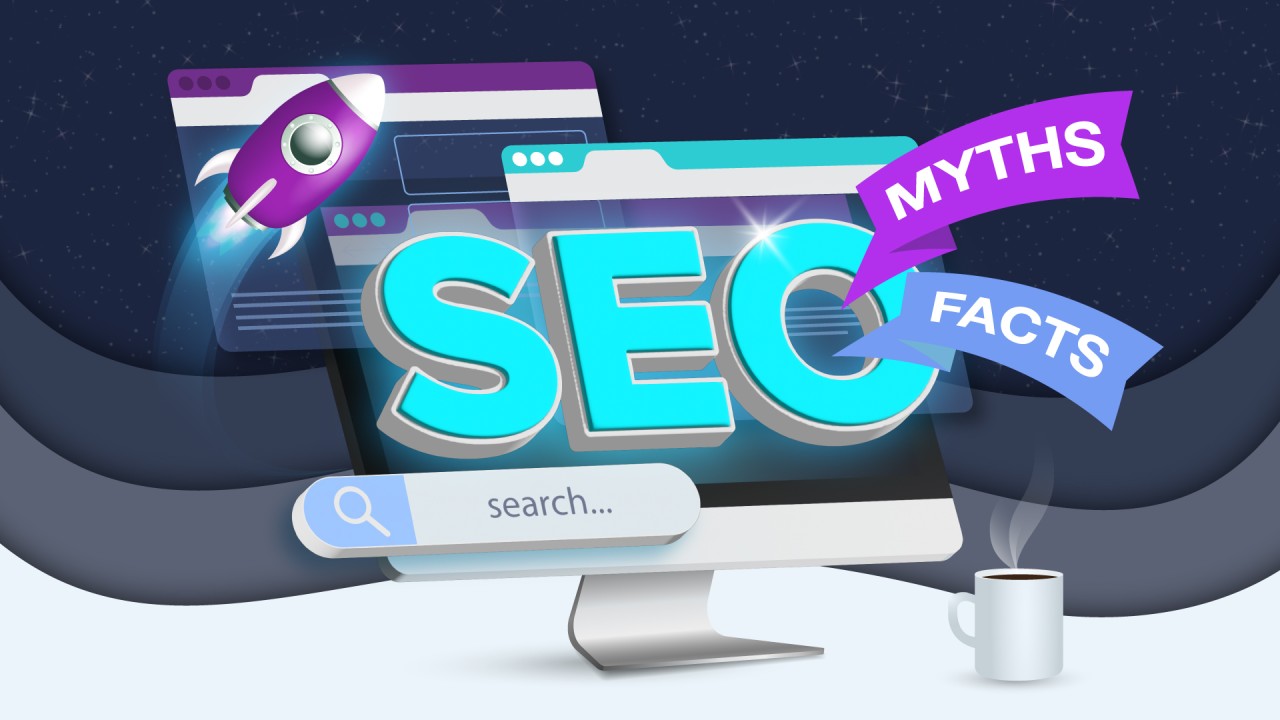Search Engine Optimization (SEO) is a critical aspect of digital marketing that can significantly impact a website’s visibility and ranking on search engine results pages. However, with the ever-evolving algorithms and rules, several myths have emerged that can lead to misconceptions about SEO practices. This article aims to debunk these myths and share some interesting facts about SEO.
Common SEO Myths Debunked
Myth 1: The Google Sandbox
Contrary to popular belief, there’s no evidence to suggest that Google automatically suppresses new websites. While new sites may not rank as high initially, consistent and quality content coupled with good SEO practices can improve their ranking over time.
Myth 2: Duplicate Content Penalty
Google does not penalize websites for duplicate content. However, it strives to show diverse content in its search results, which means duplicate content might not rank as high.
Myth 3: PPC Advertising Helps Rankings
Spending money on Pay-Per-Click (PPC) advertising does not improve organic rankings. While PPC can increase visibility, it doesn’t directly influence a website’s organic search rankings.
Myth 4: More Keywords, Better Ranking
Overusing a keyword, also known as keyword stuffing, can actually harm your SEO. Google prefers content that is written in a natural, user-friendly manner.
Interesting SEO Facts
Fact 1: Content Is King
High-quality, relevant content plays a crucial role in SEO ranking. Websites with consistently updated, valuable content are likely to rank higher in search results.
Fact 2: Mobile Optimization Is Essential
In today’s mobile-first world, having a mobile-friendly website is critical for SEO ranking. Google uses mobile-first indexing, which means it predominantly uses the mobile version of the content for indexing and ranking.
Fact 3: HTTPS Matters
Websites with SSL protection (HTTPS) receive a slight ranking boost from Google. This is because HTTPS provides a secure connection, which is particularly important for websites that handle sensitive customer information.
Fact 4: Readable URLs Are Better
URLs that are simple and easy to read are more user-friendly and can contribute to improved site rankings. It’s best to use URLs that accurately describe the page’s content.
Understanding the difference between SEO facts and myths is crucial for implementing effective SEO strategies. As the field of SEO continues to evolve, staying informed and adaptable is key. Keep learning and stay updated!



Pretty! This has been a really wonderful post. Many thanks for providing these details.